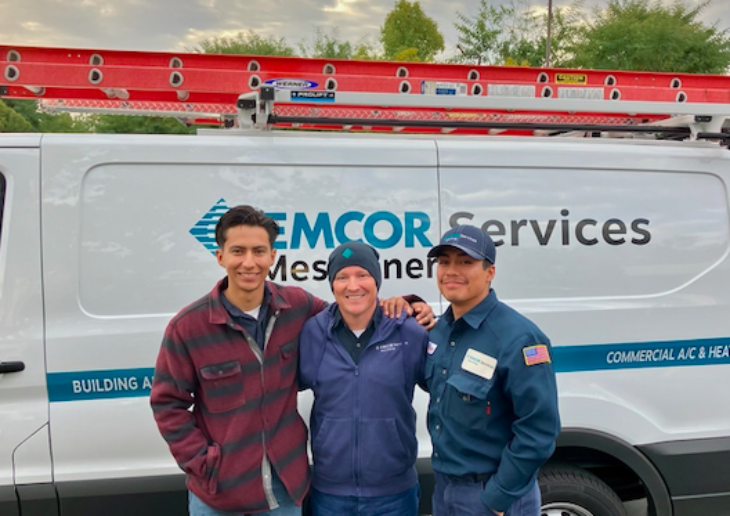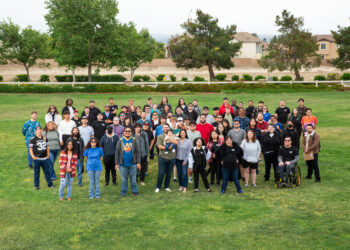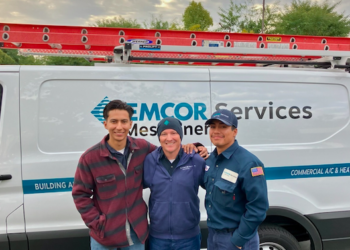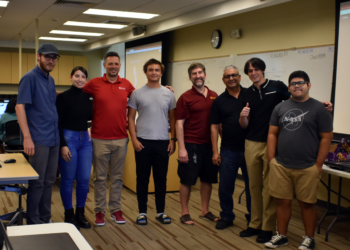Chill Skills: Riverside City College’s HVAC Program Sets Students Up for Success

The Riverside City College Heating, Ventilation, and Air Conditioning (HVAC) program isn’t just blowing hot air. The HVAC program is helping RCC students successfully connect with local employers and learn the essential hands-on skills — all while earning a well-deserved paycheck.
“I won’t bring contractors into the school unless they pay our students a minimum of 20 dollars [an hour],” says Kfir Mendelovitz, HVAC instructor at RCC. With the program’s union connections, Mendelovitz remarks its standard to see his students earning an average of 25 to 30 dollars an hour.
“That’s why I like the union shops for that. They pay them as a second-year apprentice, even though they haven’t started their apprenticeship school.”
Most employers require applicants to have at least two years of experience in the HVAC field before landing a job. That’s what makes the RCC program so invaluable: Students can get the experience, get paid, and earn a degree simultaneously.
Through the program’s biannual career fairs, RCC students get the chance to connect with local HVAC professionals and companies right on the Riverside campus. The program works closely with dozens of local employers, including key players like Magnolia Heating and Cooling, Burgeson’s Heating, Air Conditioning, Electrical, Solar & Plumbing, and EMCOR.
“EMCOR is probably the number one driver for our students entering union positions,” states Mendelovitz. The program offers a reliable pipeline of qualified workers to the company, with industry-grade skills and training to match.
“Students that come to our program and finish the program, they have a passion and have a drive,” continues Mendelovitz.
“[Our students] didn’t have to go to school. They could just go work in the industry, but then it’s going to take a lot longer to make that money … They don’t have an understanding of what is needed, and then they’re only getting on-the-job training.”
According to the HVAC instructor, students attending the program are fully equipped for their future career thanks to the foundation built at Riverside City College.
“If they come to school ahead of time, they know what to expect,” boasts the instructor.
“The amount of money they’re going to receive is much higher, and then these contractors also see it because when they offer them schooling, whether it’s the union or private [contractor] … they already know our students are invested in their education.
“They’re going to continue on the path of learning, and that makes them a better technician.”
RCC students can choose from four high-powered HVAC pathways, including HVAC Residential Technology, HVAC Commercial Technology, Residential Installation, and Building Automation Control.
Once students complete their pathway and continue into apprenticeship schooling, Mendelovitz says they’re basically “guaranteed” to earn a six-figure salary within five years.
“We have discussions with our students regarding the various career paths available in the HVAC industry,” explains Pierre-Carlo Ortanez, assistant professor for RCC’s HVAC program.
“We then guide them to create a resume that they can continually update as they progress through our program. Our classes are designed to teach the necessary skills and theory required to begin a successful career in HVAC.”
The courses in the program, along with hands-on experience, helps build robust resume for students. Some of this vital HVAC knowledge includes the fundamentals of HVAC, electrical and building automation, energy conservation, gas heating, and all-weather heating. Along with regular resume workshops, it’s rare to find a student leaving RCC’s HVAC program without a career opportunity already lined up.
“The most important qualities for completing the HVAC program are having a hunger for learning, eagerness to do labs, and asking a lot of questions,” describes Ortanez.
Plus, students can expect plenty of career opportunities in the fast-growing field. According to the Occupational Information Network (ONET), California can expect nearly 4,000 projected annual job openings between 2020 and 2030, and a job growth rate across the country at an impressive six percent.
As demand for the essential mechanics and installers heats up, RCC continues to provide opportunities that condition their students for success in the industry.




